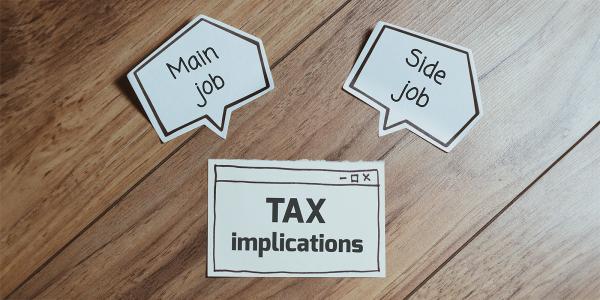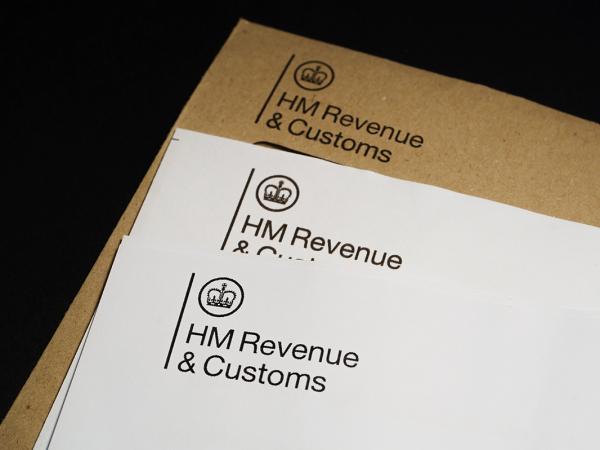The side hustle tax challenge
The beginning of 2024 saw much confusion over how so-called ‘side hustles’ are taxed. This was prompted by the introduction of new reporting rules for online platforms, which mean HMRC will get information about online sales of goods and services from next year.
So where did the confusion come from? And what might be done to improve matters in future?

Content on this page:
There is no new side hustle tax. The rules for individuals remain as they have always been. Broadly, if you make money selling goods or services through online platforms, you normally need to report it to HMRC and pay tax on it unless:
- it is covered by the trading allowance, or
- you are just selling your old things.
However, the reporting rules for online platforms (explained in our earlier article) have highlighted the challenges and complexities that individuals face in understanding and applying the rules for this type of income.
The complexities and lack of guidance
Tax rules
The rules for individuals selling items or services can be complex. The tax system develops over time and can take a while to catch up when people start to do something new. That is partly what has happened here: the traditional tax rules for earning money were not created for a world of online sales and short-term ‘gig’ work, arranged via online platforms.
Individuals need to look at what they are doing and see how the existing rules might apply, understanding:
- the difference between income and capital
- the treatment of selling off some old/used items compared to trading
- what is trading income and what is miscellaneous income
- when does the trading allowance of £1,000 apply
- the difference between turnover (total sales) and profit
- what fees platforms are deducting, so that turnover can be calculated properly.
All of these rules are hard to work your way through, especially if you can’t find information that covers the sort of thing you are doing.
Lack of guidance
Even before the introduction of the new reporting rules, there was very little HMRC guidance for those selling goods and services through online platforms.
The platforms themselves also often do not do much to help sellers understand their tax position. The platforms’ guidance is typically limited to sending sellers statements of transactions and signposting to getting an accountant.
Overall, this means a low level of understanding of tax issues among some (possibly many!) of those making money via online platforms. Sellers therefore may not have been fully aware of their tax obligations in the past.
Reporting rules for platforms – another layer of complexity
The reporting rules introduce a requirement for online platforms to collect and report data about sellers to the tax authorities. With them comes another layer of complexity, because the rules about when online platforms must report sellers’ information to HMRC do not always match when someone will be taxable. It is therefore very easy for misunderstandings to occur.
The platform reporting rules also mean that in future HMRC will have much more information about individuals’ transactions. This could mean that HMRC will uncover where people have not got their tax right in the past. So even though there are no new tax rules for individuals, to the extent it prompts people to take action for the first time, it may feel like there is a ‘new’ tax.
The impact
Misinformation
With the new reporting rules for online platforms coming in from 1 January 2024, there was a rush to explain what was happening. However, much confusion arose due to the above combination of:
- complex existing rules,
- the new reporting requirements, and
- a lack of HMRC guidance on taxation of sales made via online platforms and what the new rules mean for individuals.
We saw a lot of misinformation which then spread – and very quickly, for example via social media.
Confusion and personal impacts
Confusion has included people thinking, for example, that:
- there is a new side hustle tax
- their activity is only taxable from 1 January 2024
- HMRC are cracking down on parents selling their children’s old clothes or toys, and
- there are new rules that say sales only become taxable after 30 transactions.
None of these are correct!
We have also seen some concerning reactions, such as people worrying they are going to go to prison for not getting their tax right, people not wanting to sell online anymore, and people being referred to mental health charities.
Damaged trust in the tax system
People have taken to criticising HMRC in online posts we have seen, saying things like:
“…so we pay tax on our earnings, we pay vat on clothes we buy and then you tax us again when we sell things for a few quid…seems entirely fair…”
In other posts, HMRC have also been accused of ‘targeting the poor’ and being ‘crooks’.
We think that some of these negative impacts could have been avoided or at least minimised if HMRC had been more proactive in making individuals aware of what the new platform rules mean – before they came into effect.
HMRC’s role
The platform reporting rules came in on 1 January 2024, although work on their introduction has been in progress for several years.
HMRC have, perhaps understandably, been focused on collaborating with platforms to get them ready for the new rules, including developing some very good, clear guidance to help platforms implement the necessary systems and processes.
However, HMRC appear to have done less work to date to inform and support individuals who make money through platforms. There were no HMRC seller-focused communications or specific awareness-raising activities to explain what the new rules mean for individuals.
While different departments within HMRC appear to be engaging in activity around online platforms from the individual’s perspective, for example in compliance and guidance, there does not appear to be a single ‘owner’ linking up all the activity in this space.
Ideally there would be someone senior responsible for making sure the department maps out and understands all the issues; and for overseeing other useful activities such as:
- thinking about future problems
- increasing HMRC staff’s understanding of these rules
- collaborating with external organisations
- considering how best to educate the public on the issues, and
- how to deal with past non-compliance that will surface when platforms make their first reports next year.
We think a good starting point would be for HMRC to produce some central, official guidance for sellers to inform and educate them about their taxes – in a format that they can use and apply. And then, in line with commitments made previously, we would urge HMRC to work with platforms to, at the very least, get them to signpost sellers to this guidance.
LITRG’s work in this area
We have been busy producing our own information to help people. We have information for those in the gig and sharing economies, including a mythbuster about the platform reporting rules and a helpful flowchart.
We have been monitoring the gig and sharing economies for some time (long before the spotlight was shone upon it by the new platform reporting rules), including:
- researching issues
- responding to consultations
- raising important policy questions and
- thinking very carefully about the what the platform reporting rules mean for those on the lowest incomes.
But there is more for us to do – particularly encouraging HMRC to plan and organise some good, clear guidance for individuals.
We will also be pushing HMRC to consider how they will deal with historic non-compliance. Given the lack of guidance, we believe that many low-income unrepresented taxpayers will not have set out to deliberately evade paying tax where it was due. They may simply have not understood their obligations, and any future HMRC compliance activity needs to take this into account.
In terms of our own guidance, we understand that many people now get news and information from social media. We will therefore be looking at how we can reach people more effectively. Please let us know if you have any ideas about how we might be able to help!



